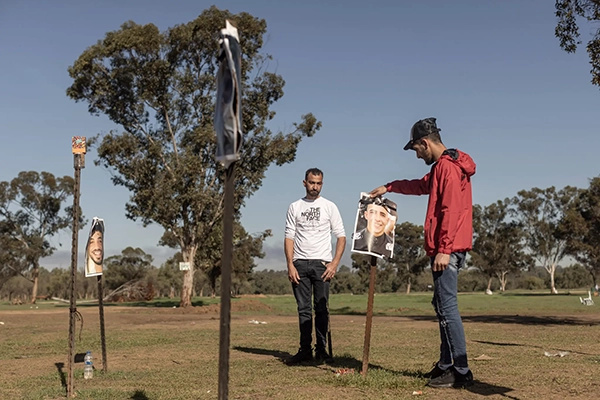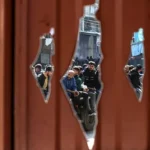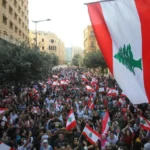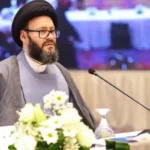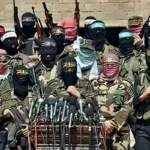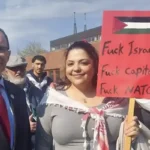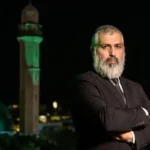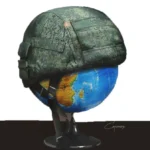A Palestinian Man Vanished Oct. 7.
Soheib Abu Amar. His Family Wants to Know Who Killed Him.
Soheib Abu Amar, who lived in East Jerusalem, was captured by Hamas during its attack on Israel. His brothers spent weeks investigating what happened next.
Abd Al-Mughani Abu Amar and Mahmood Abu Amar, the brothers of Soheib, came to the area where the Nova music festival. Natan Odenheimer accompanied two Palestinian brothers as they retraced the last known steps of a third brother who was captured by Hamas during its raid on southern Israel on Oct. 7.
On a clear December morning, two Palestinian brothers stood on a mound in southern Israel that overlooked Gaza, watching smoke rise after Israeli airstrikes.
It was a conflicted moment for the men, Abd Al-Mughani Abu Amar, 37, and Mahmood Abu Amar, 24. They live in East Jerusalem, and were thinking of their relatives in Hamas-controlled Gaza, whom they had not heard from in weeks.
But the brothers had been drawn to the Gaza border for another reason: Their youngest brother, Soheib Abu Amar, a bus driver, was captured by Hamas on Oct. 7, taken after he drove Israeli partygoers to a music festival the night before.
His brothers had come to retrace Mr. Abu Amar’s last known steps.
Some two million Arabs live in Israel, roughly a fifth of the country’s population of more than nine million. Several were among the 1,200 people killed by Hamas on Oct 7.
For Mr. Abu Amar’s brothers, the days since his abduction have been filled with bewildering emotions. As Palestinians, their hearts are with Gazans suffering under the unrelenting Israeli bombardment. But Mr. Abu Amar’s killing has also made them share in Israel’s trauma.

“The loss of so many civilians — here and there — is unbearably painful,” Mahmood Abu Amar said.
Hours before the attack, Mr. Abu Amar slept in his new minibus, and planned to drive his passengers home in the morning, his family said.
Instead he was caught up in Hamas’s attack.
After the assault began, he sent pictures and videos to his family, and updated them on his whereabouts. He called Mahmood to discuss what to do.
“I told him to leave, but he didn’t want to go without his passengers,” Mahmood Abu Amar said.
“By the time I convinced him to escape, a policeman ordered him to stay put until the barrage was over,” Mahmood Abu Amar said.
As rockets flew overhead, thousands of Hamas terrorists embarked on a deadly rampage through Israeli border communities. The rave was the site of their deadliest massacre. Some 360 people were slaughtered, and scores more were abducted.
Mr. Abu Amar tried to drive partygoers from the massacre, according to dash cam footage recovered by the police from his minibus. The footage was later given to his family.
“There are terrorists here,” he said to his passengers.
“What? Terrorists, right here?” a passenger replied.
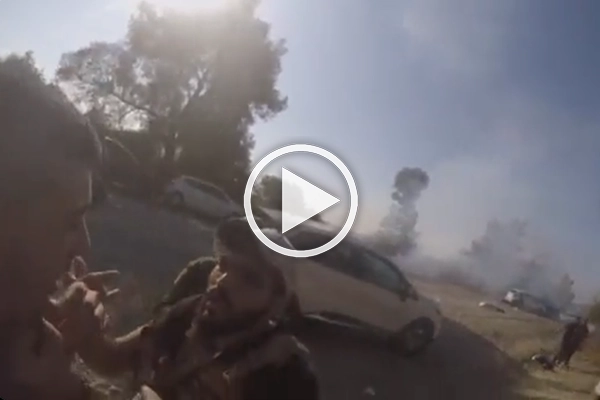
Another attacker approached Mr. Abu Amar, the video showed. “Are you Arab?” he shouted. Mr. Abu Amar tells the attacker he is a bus driver from Jerusalem.
At 9:32 a.m., Mr. Abu Amar’s brother-in-law received a call from Mr. Abu Amar’s phone.
It was a Hamas attacker who had captured Mr. Abu Amar.
“I told him, ‘Leave him,’” said the brother-in-law, who asked to remain anonymous to protect his family from reprisals. “‘He’s my brother. Let him go to his house; his mother is waiting for him. He is from Jerusalem, not from there,’” meaning Israel.
The Hamas terrorist replied, “‘I’m not leaving him, I’m keeping him with me.’”
Hoping to rescue his brother, Mahmood Abu Amar rushed south.
By 11 a.m., he was less than 20 minutes from where his brother was being held, but soldiers closed off the area, he said. He waited at a gas station but, sensing suspicious glances, drove back to Jerusalem.
At 3 p.m., Abd Al-Mughani Abu Amar received a call from an unfamiliar number.
It was Mr. Soheib Abu Amar.
Using a fellow hostage’s phone, Abd Al-Mughani Abu Amar said his brother explained that he was being held with others.
“He spoke about a negotiation with Israeli forces, which he was hopeful would yield his release,” he said. “He asked me not to mention anything to our parents so they wouldn’t worry.”
It was the last time the family spoke with Mr. Abu Amar.
Abd Al-Mughani Abu Amar wants to know why Hamas targeted his brother. “If they knew he was Arab,” he said, “why didn’t they let him go?”

To report his brother missing, Abd Al-Mughani Abu Amar went to a police station in Jerusalem, which is often a fraught experience for Palestinians in Israel. The first officer he met — an Arab citizen of Israel — reacted aggressively, he said. “‘Go knock on Hamas’s door for help,’” he recalled the officer saying. A Jewish policewoman defused the situation and assisted him.
A few days later, the police took DNA samples from the brothers’ parents. On Oct. 18, the family received the news they had feared: Mr. Abu Amar was dead. But they still don’t know how, when or where he died.
A reporter for The New York Times found that the phone Mr. Abu Amar had used on Oct. 7 belonged to a 68-year-old woman from Be’eri, an Israeli village two miles from the festival site.
That revelation did not initially make sense to Mr. Abu Amar’s family. How did he end up with a resident from Be’eri?
A televised interview with a festival survivor offered a clue. The survivor, Yasmin Porat, said she was taken by Hamas terrorists into a house in Be’eri with 13 other hostages. She mentioned that a Palestinian from Jerusalem had helped translate a conversation between the hostages and the terrorists.
She had assumed he was a terrorist.
When a Times reporter showed Mr. Abu Amar’s photo to Ms. Porat, she realized the truth. Mr. Abu Amar had been the translator.
His fate became clearer: He’d been abducted to Be’eri and detained with a group of captured residents, as terrorists massacred people in other parts of the village.
On that December morning, the brothers visited the location where Soheib Abu Amar had photographed the minibus on Oct. 7.

They went to Be’eri to see the home where he was held hostage. Mahmood Abu Amar examined its bullet-charred walls.
Not long after Soheib Abu Amar spoke to his family for the last time, Israeli security forces engaged in an intense battle with Hamas terrorists at the home, according to interviews and video from the scene. All of the hostages, except for Ms. Porat and another woman, were killed during the firefights.
Mahmood Abu Amar said he is “angry with both sides.”
“People ask me who killed him,” he said, “but I don’t know how he died. I decided to come here to try to find out, hoping that if I know more about his last moments, the pain will ease.”
Eran Betito, a Be’eri resident who took the brothers to the house, told them his heart went out to them. He said he also lost relatives and friends on Oct. 7.
Families of the hostages, who want an investigation to begin immediately, have written a letter to officials in Be’eri, asking that the home not be demolished until the military and the police have carried out an inquiry.
“We want peace,” Mr. Betito said. “We are held hostage by warmongering extremists.”
Abd Al-Mughani Abu Amar nodded and said that he, too, shares the kibbutz’s pain.
“We work with Israelis, we have Israeli friends that are like family to us, we know that we can get along,” Abd Al-Mughani Abu Amar said.
“This war will end someday when two leaders agree to shake hands,” he added. “But our sorrow, our pain, will never heal.”

Natan Odenheimer. Jan. 6, 2024


